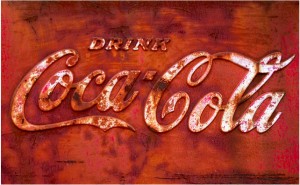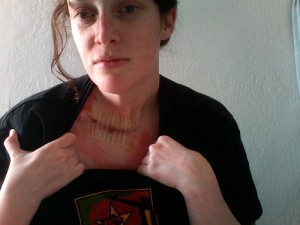The Center for Science in the Public Interest (CSPI) recently contacted Food and Drug Administration (FDA) to ban 4-methylmidazole (4-MEI) found in soft drinks which is a carcinogenic ingredient. Coca-Cola and Pepsi use 4-MEI to give their product it’s distinct caramel color everyone knows. 4-MEI is formed when sugar is mixed with ammonia and sulfite to be used as a colouring substance. It can also be found in dark beers and other brands of cola drinks, which contain more than 100 ug per 12-ounce serving of 4-MEI.
Companies using this compound would have to change their formula or print cancer-warning labels on their products. Even though companies challenged CSPI’s decision, they decided to change their recipes to avoid having cancer warnings on all of their products. The organization wants the ban of this compound everywhere not just in the U.S.
A Coca-cola representative responded to CSPI, saying their data is inclusive and stated
“While we believe that there is no public health risk that justifies any such change, we did ask our caramel suppliers to take this step so that our products would not be subject to the requirement of a scientifically unfounded warning,”
FDA has yet to make a ruling on this issue. I tried looking for any studies linking 4-MEI to cancer in humans but came up empty. Only came across one study that found high doses of 4-MEI to cause lung and liver cancer to rodents. You would need to drink more than 1,000 cans a day to reach lethal doses that have shown links to cancer in rodents
The change of 4-MEI is only be rolled out through out the U.S because of the new mandate. In the case of Canada, the change will come but there is no timeline yet. In Canada Cola products meet food safety standards and is not a concern. They have approved the use of 4-MEI in their products.
Following video below briefly explains the issue on hand.

Personally, I don’t think this will stop me from drinking Coca-Cola. CSPI is just over-reacting and there is no need to slap a cancer warning labels on products containing 4-MEI. There is not enough evidence supporting 4-MEI causing cancer in humans; even then you will need to drink cola in high doses. One thing that comes to my mind is if they were to put a cancer-warning label on the drinks, would it impact sales? Cigarette cartons have similar warning signs but that doesn’t stop consumers from purchasing them. If a product tastes good, people over look the side effects.
What do you think? Would you stop drinking soft drinks with 4-MEI?







 log and watching the video, please take these messages. Forget the healthy glow and avoid the tanning beds. Rub sunscreen on every exposed part of your skin and check your skin for irregular signs of moles and spots. It you catch it early you can stop the spread.
log and watching the video, please take these messages. Forget the healthy glow and avoid the tanning beds. Rub sunscreen on every exposed part of your skin and check your skin for irregular signs of moles and spots. It you catch it early you can stop the spread.